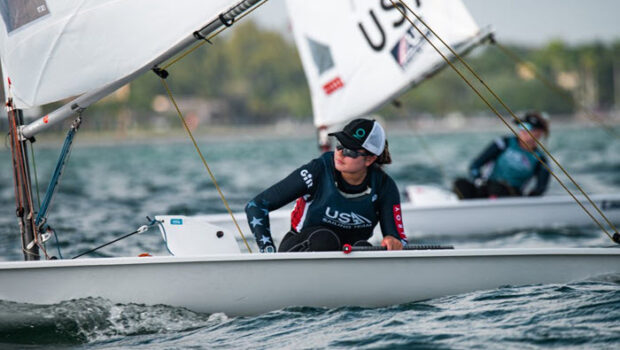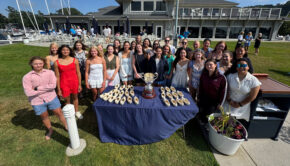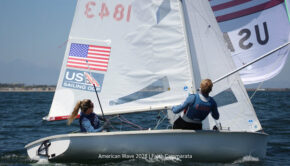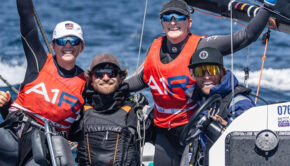Only for those with Olympic aspirations
Published on January 29th, 2024
by Craig Leweck, Scuttlebutt Sailing News
It was a bit of a shocker when the US Olympic Sailing Program failed to win a medal at the London 2012 Olympics, as the build-up did not reveal pending under-performance. But there were cracks in the foundation, and this shortfall brought renewed attention to the program.
However, US Sailing has since then struggled to provide a program that instills confidence, enduring turnover and turmoil that has thwarted any turnaround. But I have long contended that even a healthy program would struggle due to the preponderance of school sailing that occurs in the USA.
While there are many positives that exist in High School and College competition, the 8+ years of focusing on low-tech doublehanders does not sufficiently develop the skills needed at the Olympic level. If there is a desire to take that next step, starting the climb after college requires significant time and money to catch up.
When I shared my opinion in Scuttlebutt #6321, it prompted this reply from Bill Canifeld:
“College sailing should not be used as an excuse for our woefully weak Olympic program. Successful Olympic countries do three things that the US does not do. We don’t identify sailors with potential at a young age and get them in development programs in the right boats. We don’t offer any financial support to a young sailor who has Olympic aspirations but rather throw it back as a financial burden on his family.
“Finally, there is no large pot of gold as a financial reward for medaling. Many countries offer up to multiple million dollars for a gold. Our athletes receive $40,000 that is taxed in all Olympic sports.
“College sailing allows about 500 sailors to enjoy the sport they love in competitive but fun settings. We all continue to complain that sailing as a sport is shrinking because we are taking the fun out of it. We are hypocritical when we critique college sailing for our Olympic failures. Please leave college sailing alone and let it continue to provide fun sailing for those athletes who for the most part have no Olympic aspirations.”
I sense we are saying some of the same things. In the USA, youth sailing got structured in the 1980s, and High Schools sailing took off in the 1990s, and this emphasis on institutional boats has increased teenage participation but hastened technical ability. The more types of boats we sail, the more skills we accrue, so that has been missing.
However, youth development programs in more techie performance boats is now occurring more broadly, which is a key step toward skill-building. If someone has Olympic aspirations, they must aim their focus in that direction sooner. Beginning after college has proven to be too late.
Paris 2024 Olympic Sailing Program*:
Men’s One Person Dinghy – ILCA 7 (41)
Women’s One Person Dinghy – ILCA 6 (41)
Mixed Two Person Dinghy – 470 (19)
Men’s Skiff – 49er (20)
Women’s Skiff – 49erFX (20)
Men’s Kiteboard – Formula Kite Class (20)
Women’s Kiteboard – Formula Kite Class (20)
Men’s Windsurfing – iQFOiL (24)
Women’s Windsurfing – iQFOiL (24)
Mixed Multihull – Nacra 17 (19)
* Quota per event in parenthesis but does not include Universality Places (2 men, 2 women)
Venue: Marseille, France
Dates: July 28-August 9
Details:
• Paris website: https://www.paris2024.org/en/the-olympic-games-paris-2024/
• World Sailing microsite: https://paris2024.sailing.org/









 We’ll keep your information safe.
We’ll keep your information safe.